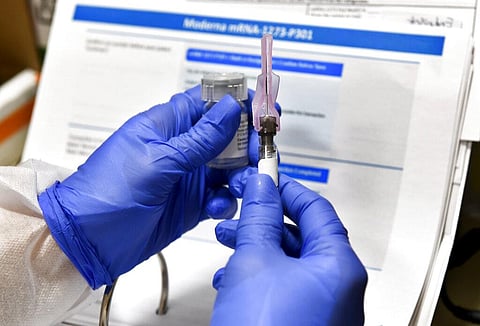

NEW DELHI: The National Technical Advisory Group on Immunisation’s (NTAGI) Covid working group is expected to soon discuss data related to India's first mRNA vaccine against Covid, an official source said Monday.
The country’s first homegrown mRNA Covid-19 vaccine developed at Pune’s Gennova Biopharmaceuticals recently received emergency use for the age group 18 years and above from the Drugs Controller General of India (DCGI).
The NTAGI Covid working group is also said to discuss Biological E's Corbevax booster dose for Covishield and Covaxin beneficiaries.
The Subject Expert Committee (SEC) under India's drug regulator is said to be satisfied with the data submitted by the Pune-based firm in its meeting last week.
Gennova Biopharmaceuticals submitted the data in April. They were asked for additional information, which they provided in May.
The pharma company said they aim to produce around 4-5 million doses per month, which can be quickly doubled as soon as they get a go-ahead from the government.
The company has 7 million doses approved and released by the Central Drug Laboratory in Kasauli.
Apart from India, Gennova aims to provide access to low-and middle-income countries worldwide to blunt the spread of pandemics.
The mRNA vaccine produced by Gennova Biopharmaceuticals Ltd will be sold under the brand name GEMCOVAC-19.
The company is also discussing the pricing of the vaccine with the government.
GEMCOVAC-19 is a thermostable vaccine and can be stored between temperatures of 2 to 8 C, which makes it favourable for deployment in India and other developing nations, as it can be transported to the most remote parts easily.
In contrast, mRNA vaccines made by Pfizer-BioNTech and Moderna need to be stored at sub-zero temperatures, which remains a challenge in lower and middle-income countries, officials said.
mRNA vaccines are considered safe as mRNA is non-infectious, non-integrating in nature, and degraded by standard cellular mechanisms, Gennova claimed. Its technology allows quick tweak of the vaccine for any existing or emerging virus variants.